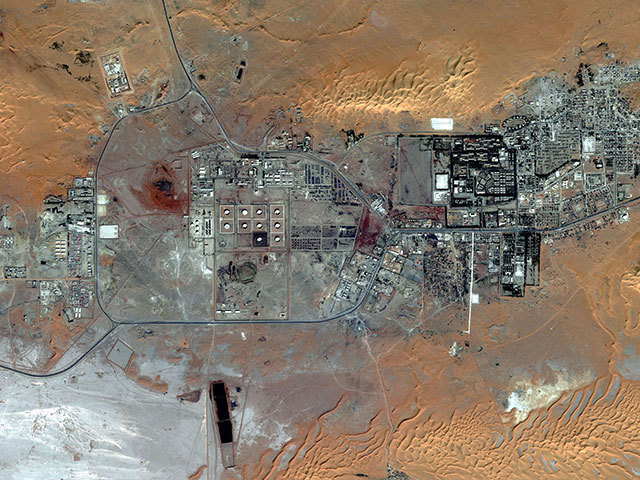
Six Britons were executed at a BP gas plant in Algeria by Islamic terrorists who were allowed to travel across the Sahara ‘unhindered and unnoticed’, an inquest heard.
Kenneth Whiteside, 59, Carson Bilsland, 46, Sebastian John, 26, Stephen Green, 47, Paul Morgan, 46 and Garry Barlow, 49, were shot dead by extremists as Algerian special forces moved in on the In Amenas desert complex.
They were among 40 hostages who were killed at the the BP run facility in the north African country during a four-day siege.
Carlos Estrada, a Colombian national who lived in Chelsea, west London, was also murdered by the terrorist group, who have links with Al Qaeda.
An inquest at the Royal Courts of Justice has since been opened into the deaths of the seven men.
At a pre-inquest hearing today (tues), Andrew Ritchie QC, for Mr Estrada’s family, said BP may have failed to ensure there was a strong security presence around the In Amenas complex.
He told the court that security guards were left unarmed and that two vehicles, belonging to BP which went missing on the day of the attack, have still not been accounted for.
The coroner heard the terrorists were allowed to travel 30 miles across the Sahara desert from the Malian border with Algeria, to the facility, unchecked.
‘Only one track leading to In Amenas had checkpoints on it, and there were two vehicles which went missing ahead of the attack’, Mr Ritchie said.
‘BP are still to fully disclose this evidence.
‘Terrorists were able to ride across an important part of the desert unhindered and unnoticed – it is a question of how they were able to do that’.
Almost 800 people were at the desert complex when heavily armed militants entered at dawn on January 16 last year.
Heavily armed gunmen attacked two buses carrying foreign gas workers at the plant before taking hostages at the plant’s living quarters.
The gas facility, in eastern Algeria, is a joint venture run by Statoil, the British company BP and the Algerian state energy firm Sonatrach.
Mr Estrada had worked for BP for 18 years and had risen to the post of Vice President for North Africa when he was taken captive and killed.
Mr Whiteside, who, had lived in Johannesburg for 30 years with his wife and two daughters and formerly of Glenrothes in Fife, and Mr Bilsland, of Bridge of Cally in Perthshire, were also shot dead.
Senior Coroner Penelope Schofield said a 250-page document sent from the Algerian authorities investigating the attack could not be used at the full inquest due to ongoing criminal proceedings against the arrested militants.
Some 29 of the hostage takers died, while three were captured by Algerian troops during a special forces mission to end the bloodshed.
David Cameron remarked in the aftermath of the siege that there were ‘lessons to be learned’ from the attack, the court heard.
‘It is inconceivable that there has not been a full investigation considering the comments of the Prime Minister’, Mr Ritchie said.
‘If the Algerians are not going to assist then assistance ought to come from ambassadorial and consulatorial authorities.
‘We have no information how these men were able to get 30 miles across the desert from the border’.
The court heard that although there is plenty of information of what happened within the perimeter of the In Amenas complex, there is ‘next to zero’ information of what happened outside it.
Ms Schofield adjourned proceedings for a further pre inquest hearing on August 29.
The full inquest into the death of Mr Estrada of Chelsea, west London; Mr Whiteside, of Glenrothes, Fife; Mr Bilsland, of Bridge of Cally, Perthshire; Mr John, of Norfolk; Mr Green, of Hampshire; Mr Morgan and Mr Barlow, both of Liverpool, is due to be held on September 8.
ends